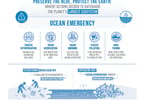Some advocates of social media marketing mention that success in this space must be measured by whatever metrics already drive your business – e-commerce sites should increase sales, media sites should increase page views, etc.
They strictly recommend that success in travel social media shouldn’t be considered as something other than supporting one’s core business.
Assessing the same, Ric Shreves, founding partner, water&stone, says there is still a little acceptance/recognition of an agreed set of meaningful metrics.
“It’s understandable, as this is a hard sector to measure. How does one measure “engagement”? Certainly, user-site activity and membership levels are very useful and easy for everyone to grasp, but aside from numbers related to those key factors, there is a little agreement in this space. I look at metrics as part of your ongoing monitoring and feedback cycles – they are indicators of the impact of your efforts and should help inform your strategic decisions, but the bottom remains the ultimate judge of success,” said Shreves, who is scheduled to speak during EyeforTravel’s Travel Distribution Summit Asia 2009 to be held in Singapore (April 1-2).
In this phase of online travel, consumers are using the web to ask open-ended questions for the first time rather than the traditional closed questions. The response to these open-ended questions is an avalanche of answers and information from an almost limitless range of content providers.
On how travel 2.0 sites or community portals can differentiate themselves, Shreves says differentiation in this space will be achieved through reputation and responsiveness.
“Sites premised on helping consumers decide where to go, what to do, where to stay are in the service business. If you are going to premise your business on advice, the credibility factor has to be there – people have to trust you as a reliable source of information. In terms of responsiveness, users that post questions need timely responses. You have to engage them else they will solve their problem another way – possibly on a competitor’s site,” said Shreves.
On monetization, he mentioned that the key is getting users to transact on your site once the travel planning decision is made.
“Your only other option really is advertising and that is not going to pay the bills by itself. I have yet to see a membership model that seems viable,” said Shreves.
Most travel sites are directly tied to a purchase decision, but there is also the opportunity for paid membership-based communities; research and feedback communities; loyalty program communities, and, of course, the media property model based on advertising revenues or value of the database. As with so much else, it comes down to developing UGC sites not because they are voguish, but because they specifically address a business need, customer need, or a market opportunity.
Regarding the same, Shreves said: “For an existing firm, I think UGC has huge marketing value. Done properly, you raise awareness; educate the consumer base; provide customer support; give a boost to your affiliates, resellers, agents; and, in general, build goodwill around your brand. I’m a huge fan of indirect marketing and being a rich information source for existing and potential customers. Whether that fits in a particular firm’s marketing philosophy and resource allocation is to be determined on a case-by-case basis.”
He added, “This is a completely different issue if we’re talking about building a new business based entirely on UGC. This is a tough slog, though clearly sites like TripAdvisor and Craig’s List show the way. Question is, are they category killers? Will new sites moving in this space be relegated to staking out a niche?”
For more information, click here: http://events.eyefortravel.com/tdsasia/conference/agenda.asp.
WHAT TO TAKE AWAY FROM THIS ARTICLE:
- On monetization, he mentioned that the key is getting users to transact on your site once the travel planning decision is made.
- As with so much else, it comes down to developing UGC sites not because they are voguish, but because they specifically address a business need, customer need, or a market opportunity.
- Whether that fits in a particular firm’s marketing philosophy and resource allocation is to be determined on a case-by-case basis.






















